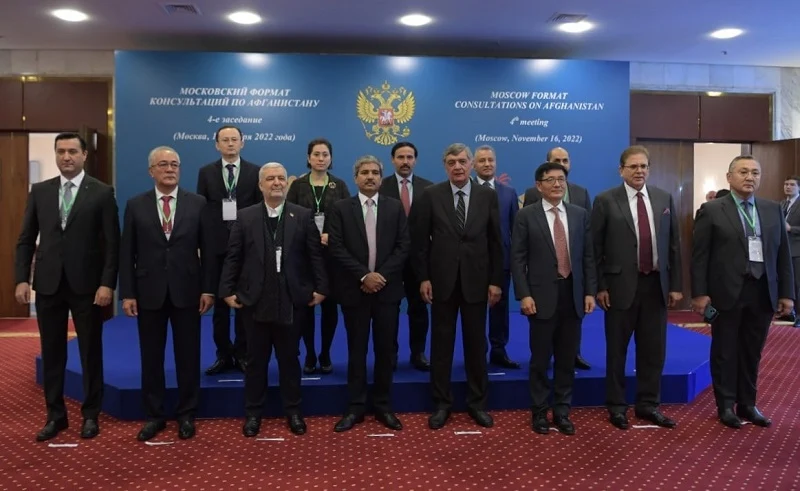A major regional conference in Moscow has urged the Taliban to “resolutely” eliminate terrorism, and work towards an inclusive government in Afghanistan that represents all ethnic groups.
Special envoys/senior officials from Russia, India, China, Iran, Kazakhstan, Kyrgyzstan, Tajikistan, Turkmenistan, Uzbekistan and Pakistan who participated in the fourth meeting of the Moscow Format Consultations on Afghanistan held in the Russian capital on Wednesday conveyed this message to Afghanistan’s current rulers.
The Taliban had swept into power in Kabul on August 15 last year.
The Indian delegation at the meeting was led by J P Singh, Joint Secretary (Pakistan, Afghanistan and Iran) at the Ministry of External Affairs. Singh also held discussions with Special Envoys of the other participating countries on the sidelines of the event.
As reported by IndiaNarrative.com earlier, there was no Afghan participation at the meeting this time as the Vladimir Putin government remains quite unhappy that the Taliban did not comply with the recommendations given to them during the previous meeting held on October 20, 2021.
“One of the points (of a joint statement following last year’s meeting) called on the Afghan authorities in Kabul to take steps to form an inclusive government. Unfortunately, this did not happen. This time we decided to limit ourselves to inviting participants only in the regional format,” said Zamir Kabulov, the Russian President’s Special Representative for Afghanistan and Director of the Second Asia Department of the Russian Foreign Ministry.
In the Joint Statement issued later, Afghanistan was urged to fulfill its obligations to eradicate terrorism and drug trafficking emanating from its territory and take “more tangible measures” against all terrorist organisations.
The group emphasised the unacceptability of placing military infrastructure facilities of third countries in Afghanistan and in neighbouring states and the importance of the efforts of the Afghan authorities to ensure the basic rights and freedoms of the population.
The participants noted that the economic crisis in Afghanistan could lead to a mass exodus of refugees, provoking extremism, terrorism and instability which could pose a threat to the peace and stability of neighbouring countries.
The members reached an agreement to continue coordination of regional efforts to promote intra-Afghan national reconciliation, strengthen security and stability in the region under the auspices of the Moscow Format of consultations on Afghanistan and other effective mechanisms.
They also backed the need to increase efforts to provide humanitarian and economic assistance to the Afghan people for the post-conflict reconstruction of the country.
During the meeting, the Russian Foreign Ministry released a White Paper on the facts of the death of the civilian population of Afghanistan “as a result of the illegal actions of the United States and its allies”.
Moscow also said that the forces responsible for the 20-year military presence in Afghanistan should assume the main financial burden for the post-conflict reconstruction of the Afghan economy
“A consolidated demand was expressed for the need for Washington to completely unfreeze blocked Afghan assets. A strong call was made to the US and NATO countries, responsible for their 20-year military presence in Afghanistan, to compensate for the damage caused to the Afghans over the years,” the Russian Foreign Ministry said in a statement after the meeting.
Calling for the development of “common, coordinated approaches” to interact with the interim government of Afghanistan, the members supported the formation of an international negotiating group on Afghanistan under the auspices of the United Nations.




















